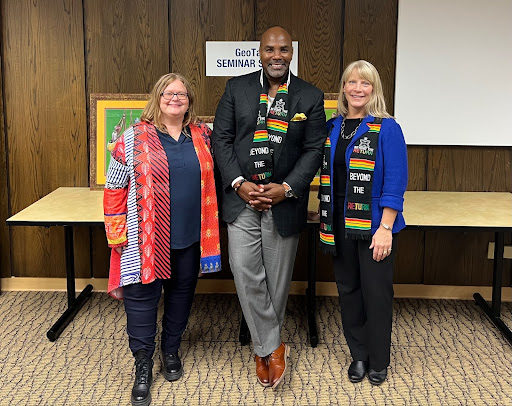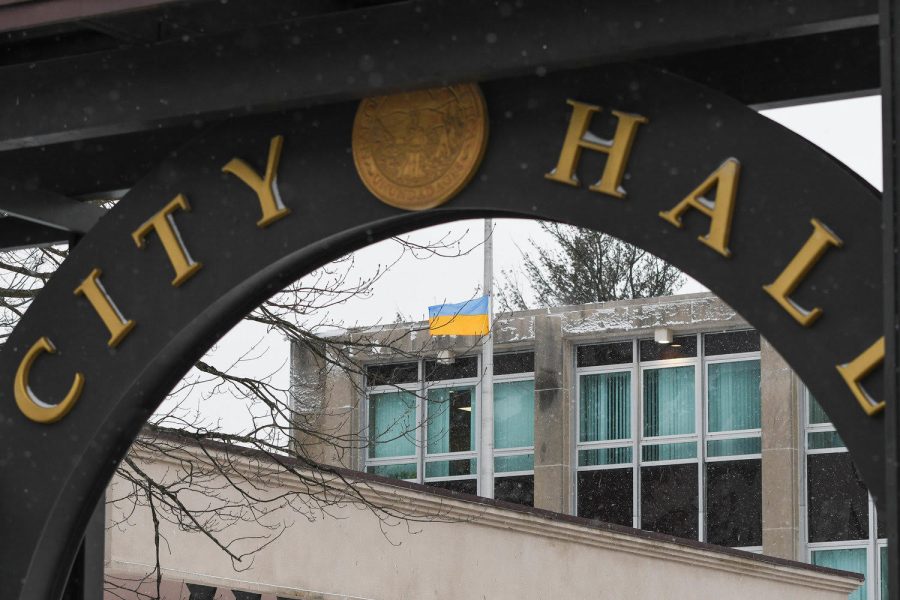Jan. 27 marked Holocaust Remembrance Day — a day to remember and reflect on the tragic genocide that led to the death of more than 6 million Jewish women, men and children in the 1930s and 40s.
But even though there is a day dedicated to the horrors that occurred nearly 75 years ago, it appears fewer people remember the events of the Holocaust.
According to a survey conducted by the Conference on Jewish Material Claims Against Germany, 41 percent of Americans do not know what Auschwitz is, and 66 percent of young people do not know Auschwitz was a concentration camp. However, the study notes that 93 percent think that students need to be taught about the Holocaust in schools and that fewer people care about the Holocaust today.
Peter Desimone, a professor of history at UC, linked the lack of remembrance with the generational gap that society is experiencing. He explained that a gap occurs with the passing away of people who experienced the Holocaust or were alive during or close to the time period it occured.
“You lose the generations over time, which isn’t a good thing, especially for an event like that,” Desimone said.
Desimone explained that the Holocaust is an interesting event because “the response is not what one would think it would be.”
“It’s looked at as such a horrific event that the initial response is that we can’t even comprehend it; it’s just pure evil, it must be a unique thing,” he said.
He added that many people question if they should study it as a formal abnormality or if it can be learned from and made sense of.
“Unfortunately, it is a formal abnormality because no one wants to talk about the event and its own people would prefer to look at it as, ‘Oh well, look at the Nazis, they were just evil,’” Desimone said. “So it’s part of the story of nazi germany rather than it’s own historical event.”
It was not until the 70s and 80s that people start to study the Holocaust as its own event, Desimone said. People began to have a better chance to process it and talk about it, while some wanted to leave the events in the past. Once the early 1990s began, people started to realize the events of the Holocaust are something anyone is capable off.
In the 2010s, generations of people who experienced the events and can remind society about the events of the Holocaust are dying off.
“We need to learn from this event because things are getting bad; there are many correlations, you get things where current American society is getting criticized for looking over minority treatment as well,” Desimone said. “And this is not just an American issue, this is a european issue. You see this approach of whitewashing the situation as, ‘Yep, this was a bad thing, but this was a bad thing in a bigger context.” Then, unfortunately, we get to this trend of Holocaust denial.”
Desimone stated that a perfect example of the erasure of the Holocaust is Poland making it illegal to talk about Polish collaboration with Nazis that perpetrated the event.
There have been international problems that have risen from the loss of urgency to learn about the Holocaust as well, Desimone said. Russia introduced a bill to the U.N. that would make Nazi celebration and the denial of the Holocaust an international crime. The U.S. was one of the countries that said “no” to the bill due to the protection of freedom of speech under the First Amendment.
Desimone added that it is a difficult question to answer whether freedom of speech is more important than hate speech, but he would hope most people would not agree with allowing hate speech to prevail.
“History doesn’t repeat itself, but you get certain similar circumstances that develop,” he said. “It’s usually around the 70- or 80-year marks that people start to forget what came before, and in modern day we like to look back and say that it will never happen again, but ignorance is one of the warning signs.”
Amanda Rossi, a junior, believes less people remember the Holocaust due to the fact that today’s society is not as educated on the topic and history itself.
“It’s extremely important to learn about the past and the best way to do that is to help educate children by making sure they are actually learning and understanding the different parts of history,” she said.
Rossi said that some of her best educational experiences involved learning about the Holocaust, including a trip to Washington, D.C., to visit the Holocaust museum.
“Not only was I able to see live footage of the Holocaust, but I was able to see real-life artifacts,” she said. “I saw the thousands of shoes along with what their living conditions were like. Another way my school educated us was by bringing an actual Holocaust survivor to school to talk about her experiences.”
Junior Lindsay Serianni also believes that education is the key to remembering the atrocities of the Holocaust.
“I think schools are focusing less on the topic of the Holocaust due to exposing young students to the amount of violence and genocide that occured during that time period,” she said. “And I think teaching is the only way to ensure awareness of the events and to prevent reoccurrence of anything of that matter from ever happening again.”
















